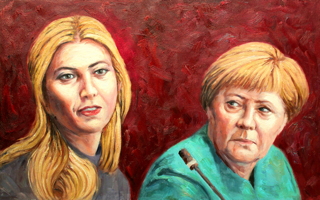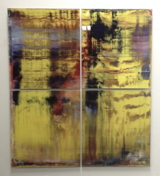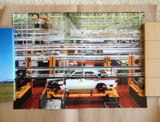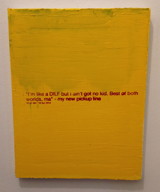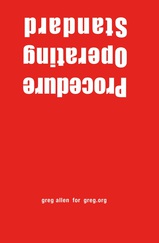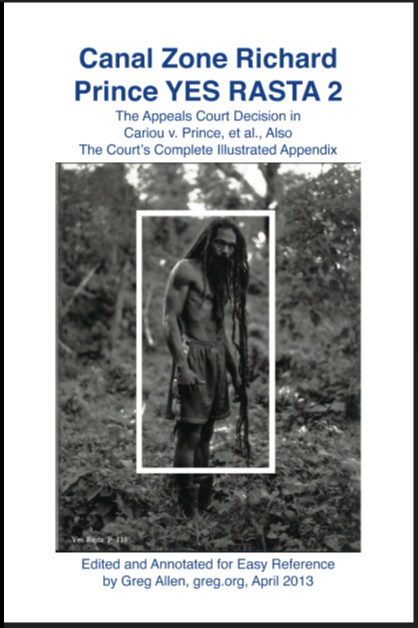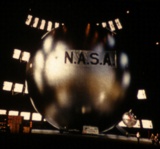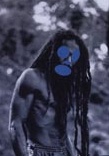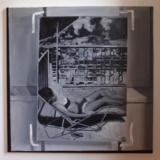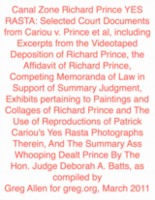Can I just say, it's only a couple of weeks in, but I'm loving Richard Prince's blog. [And loving Anaba all over again for linking to it. Thanks, Martin!]
Not really a blog, I suppose, but more of a journal. Some notes. They feel pretty perfect, though, very authentically him, for better or worse. Generally for better, though.
I've been going especially deep on Prince for the last few weeks as I try to prepare the script for a live reading/restaging of the artist's Cariou v. Prince deposition, which was won by some lucky bidders at Art Fag City's benefit auction in February.
That means turning the 400-page, seven-plus hour transcript into a couple of hours of informative, relevant, and hopefully entertaining highlights that accurately communicate the real issues of the copyright infringement lawsuit; and that capture the key elements of Prince's history and practice, and how this Canal Zone series fits into it. Even in the totally oddball pressure cooker environment of a deposition, where basically every question is adversarial, leading, and contested by the other lawyers in the room, Prince's reality comes through. He's not cynical, but he is a pessimist. He has very clear, even compelling insights about his work and his controversial methods. He's occasionally funny and awkward and pissed. A human, an artist, not a construct or a brand.
I keep meaning to go through the Canal Zone Richard Prince Yes Rasta book and post some highlights. Maybe in relation to this staging, I will. Meanwhile, here's one: Dan Brooks, the lawyer for photographer Patrick Cariou, who questioned Prince, definitely seemed to be operating under the hypothesis that Canal Zone was conceived as nothing but a giant moneymaking venture. In various times and ways, Prince rather convincingly refuted that, I think, but never more powerfully than when Brooks asked about a film pitch, and Hollywood, and turning Canal Zone into a video game:
DB: Where do the video game rights come into this pitch?OK, maybe the two million dollar part undercuts the never selling part a bit, but the point is, it's not about the money, people. It's getting Roberta over there to write about your show.RP: Is that--are you asking me--you're asking me?
Q: These are your words in the interview?
A: Right.
Q: What did you mean?
A: I think I was thinking about the fact that I know nothing about video games and--but my--all my stepson's friends play them. And I felt that there might be a possibility to--I had seen some of the graphics involved in some of these games when they play, and I felt that the different tribes that take over the different hotels and they kind of, you now, it was just a thought. And I think I ran this by Michael Ovitz and he loved the idea.
Q: So you viewed this whole thing as an extremely commercially successful potential venture, paintings--
A: the pitch?
Mr. Hayes: Objection.
Q: Paintings, movies, and video game rights, right?
Mr Hayes: Objection as to form.
A: No, I've never thought that what I do or what I produce or what I put out will ever, one, sell.
I've made art for 34, 35 years and nothing sold. What I--my experience in terms of what i make, it seems that a lot of people just couldn't dig it. And to tell you the truth, it was not one--when I put up the Canal Zone show at Larry Gagosian's there was not one review in any newspaper, in any magazine. And I find that incredibly unsuccessful.Q: But weren't some of the paintings sold before the show even opened?
A: They were sold, yes.
Q: For millions of dollars?
A: I wouldn't characterize it for millions. For a couple million dollars, there were two paintings I believe that were sold before the Lehman Brothers meltdown, yes, there were two paintings that were sold for approximately 2-million dollars.

